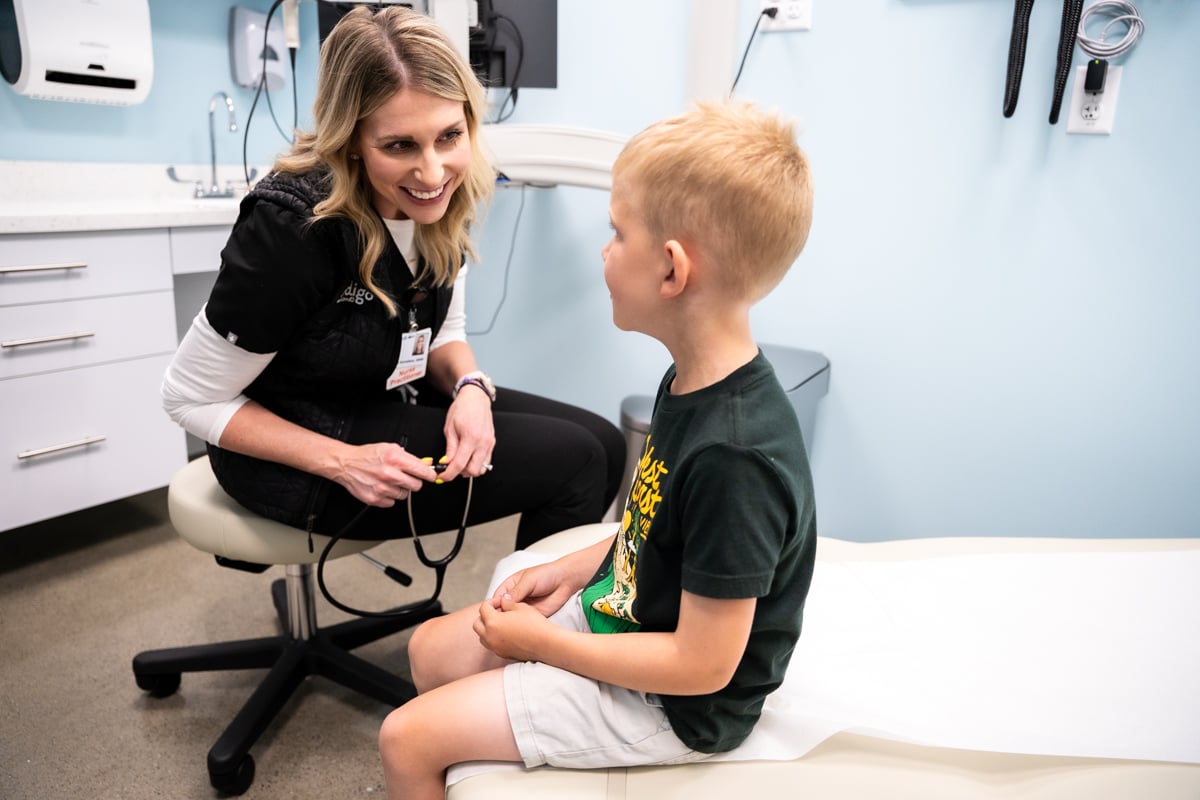Antibiotics are a medical marvel and an important tool to fight life-threatening infections. But they aren’t a cure-all for every illness.
For bacterial infections – like strep throat, ear infections or a urinary tract infection (UTI) – antibiotics are the way to go. But if you or your little one are suffering with a cold, flu or other nasty respiratory or stomach stuff, antibiotics won’t make it all better. In fact, taking them unnecessarily can cause more harm than good.
What’s the difference between viral and bacterial infections?
Germs are germs, right? Well, about that…
Bacteria are living, microscopic cells that can survive on their own, either inside or outside of the body. Most are harmless, and some even do cool things like help digest food, kill disease-causing organisms and provide essential nutrients. Only about 1 percent of bacteria causes illness in people.
Viruses, on the other hand, have a different structure and a different way of surviving. They aren’t alive and require healthy, living cells – like the ones in your sinuses and lungs – to thrive and grow. Unlike bacteria, most viruses cause illness.
Because bacteria and viruses have different structures, they respond to different types of treatment.
Why won’t doctors prescribe antibiotics for viral infections?
There are good reasons why health care providers don’t prescribe antibiotics unless they are necessary:
- They won’t do anything to treat your virus or make you feel better. Unlike bacteria that have cell walls, viruses have a protective protein covering that prevents antibiotics from attacking them.
- You may have side effects. Common side effects caused by antibiotics include:
- Rash
- Dizziness
- Nausea
- Diarrhea
- Yeast infections
- You can build up a resistance to them. The misuse and overuse of antibiotics has led to a surge of superbugs. These strains of bacteria are resistant to many types of antibiotics used to treat bacterial infections, making them difficult (and sometimes impossible) to treat. The best way to reduce your chance of developing a resistance to antibiotics is to avoid taking them unnecessarily.
While rare, more serious side effects may include severe and life-threatening allergic reactions or severe diarrhea that can lead to colon damage and death.
How can you tell if an illness is viral or bacterial?
It can be difficult to tell the difference between a viral and bacterial infection because they share similar symptoms, including:
- Coughing and sneezing
- Fever
- Inflammation
- Vomiting
- Diarrhea
- Fatigue
Some of the most common bacterial infections include:
- Strep throat
- UTIs (urinary tract infections
- Some STIs (sexually transmitted illnesses)
- Ear infections
- Sinus infections
- Food poisoning
- TB (tuberculosis)
Common viral infections include:
- Flu
- Common cold and other upper respiratory infections
- COVID-19
- RSV (respiratory syncytial virus)
- HPV (human papillomavirus)
- Norovirus
And just for kicks, well just throw in this gem: Some ailments (like pneumonia, meningitis and diarrhea) can be caused by either.
The best way to determine if your illness is caused by bacteria or a virus is to talk with a health care provider. Often, a simple physical examination and review of your symptoms may be enough to diagnose your condition. To determine a specific condition, a provider may need a blood, urine or stool sample, or a swab from your nose or throat to know what type of infection you have.
What can I do to treat a viral infection?
There’s no cure or specific treatment for viral infections, and most will go away on their own. There are ways to ease your symptoms and discomfort while your body fights the infection:
- Rest.
- Drink plenty of fluids.
- Use over-the-counter medications, such as acetaminophen (Tylenol) ibuprofen (Motrin, Advil) or a nonsteroidal anti-inflammatory (Aleve) to relieve fever, pain and body aches.
- Take an OTC decongestant for a runny or stuffy nose.
- Try throat lozenges to soothe sore throat.
In some cases, a health care provider may prescribe an antiviral medication to treat your illness.
Got a bug? Indigo can help.
If you have symptoms that last for more than a few days or you’re concerned, it’s a good idea to connect with an Indigo Urgent Care clinician.
For in-person care, just walk into one of our convenient neighborhood locations or book an appointment online. All Indigo clinics have on-site lab tests for strep, UTIs, flu and TB. If it’s easier and more comfortable to skip the trip to the clinic, simply schedule a face-to-face Virtual Care appointment from your favorite device. Either way, one of our clinicians will assess your symptoms, offer treatment recommendations and provide a prescription, if needed.
In-person and virtually, we’re here 8 am to 8 pm, every day.


